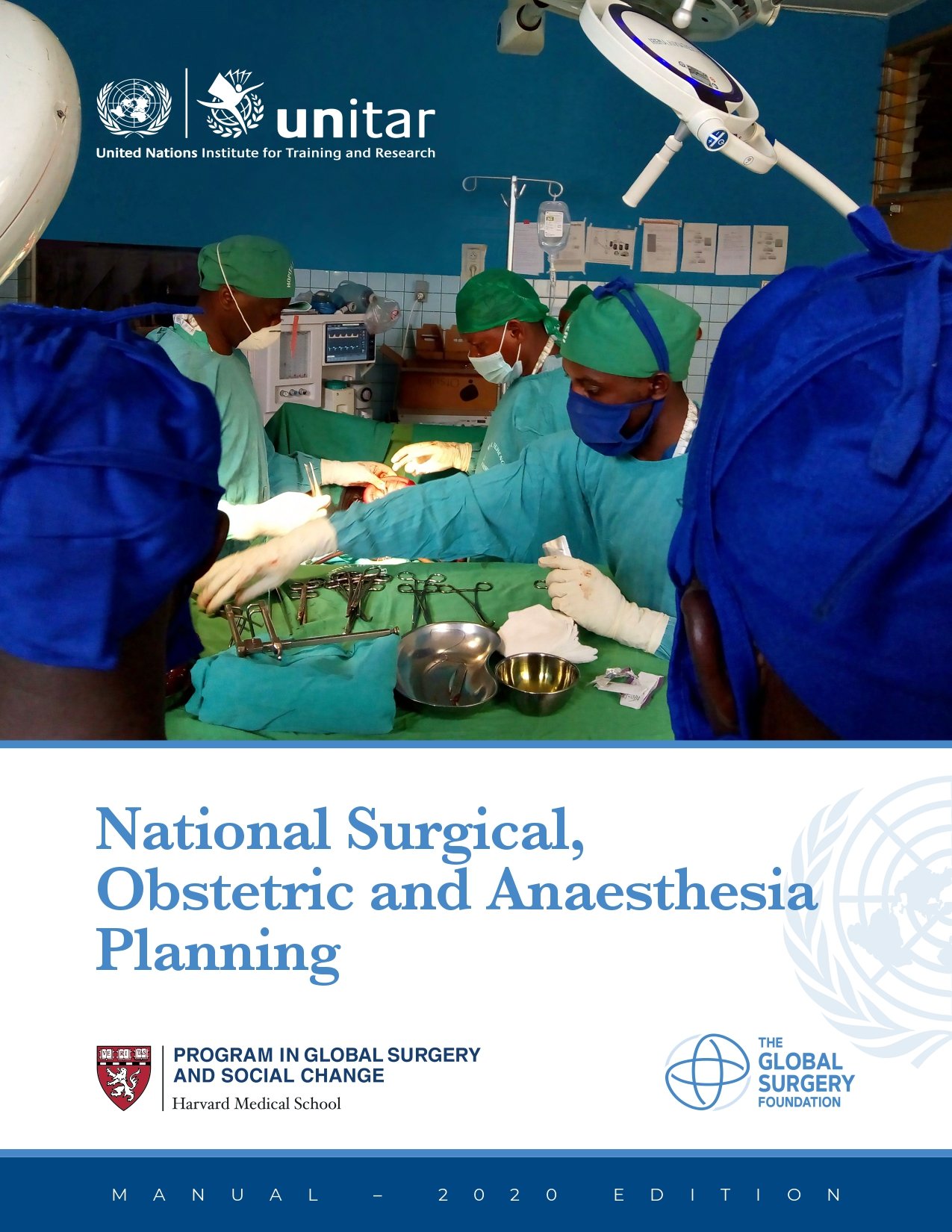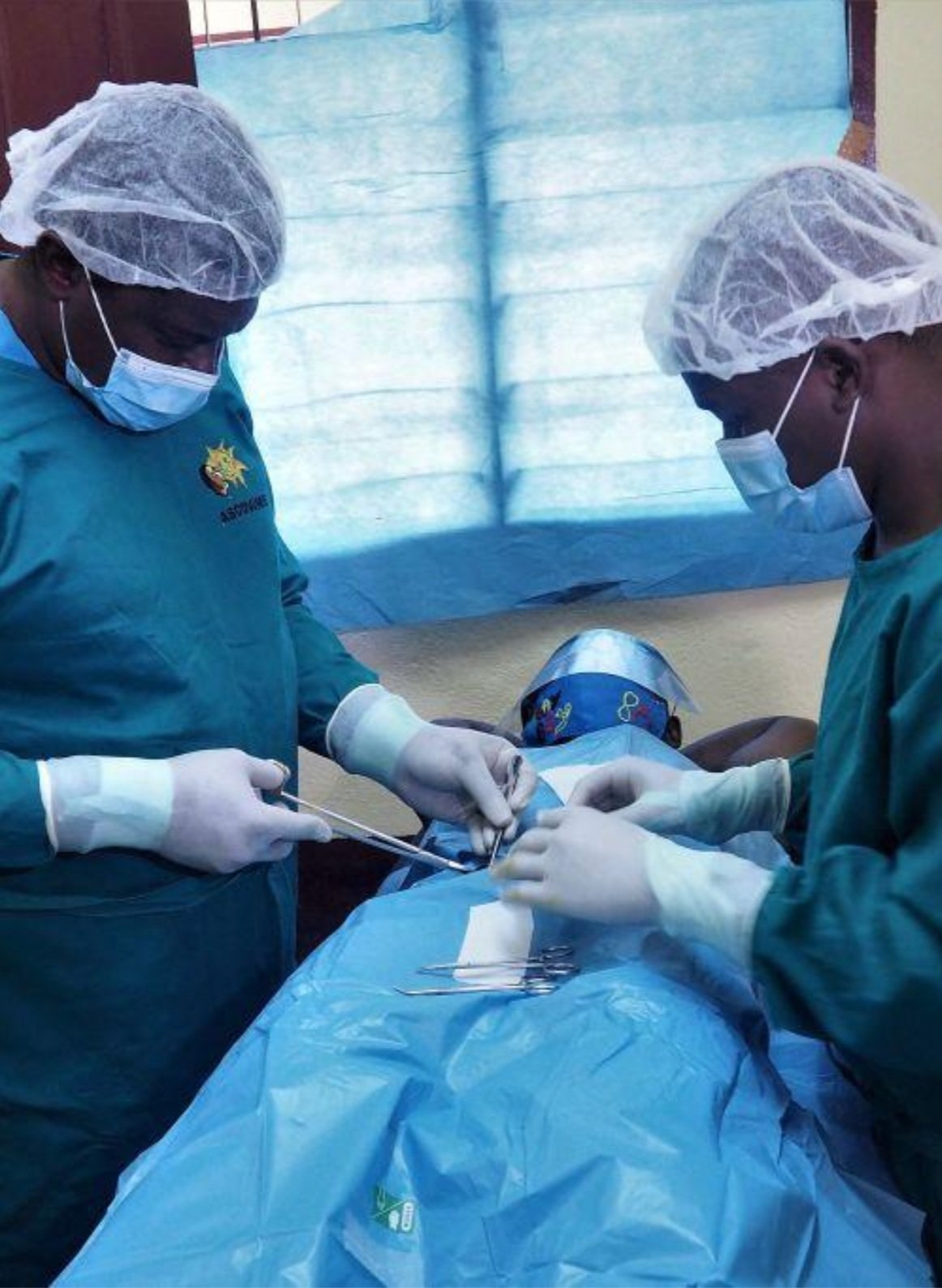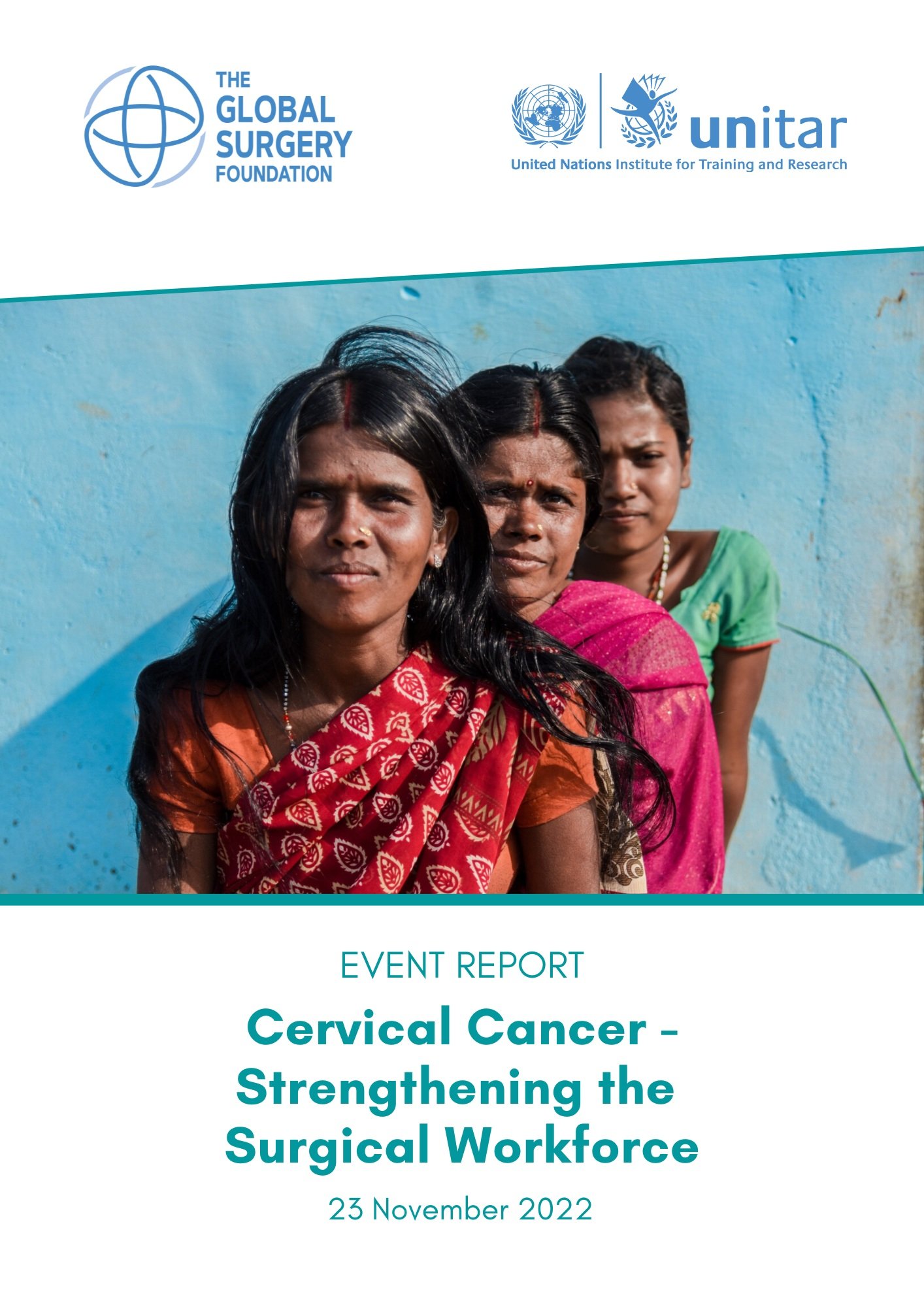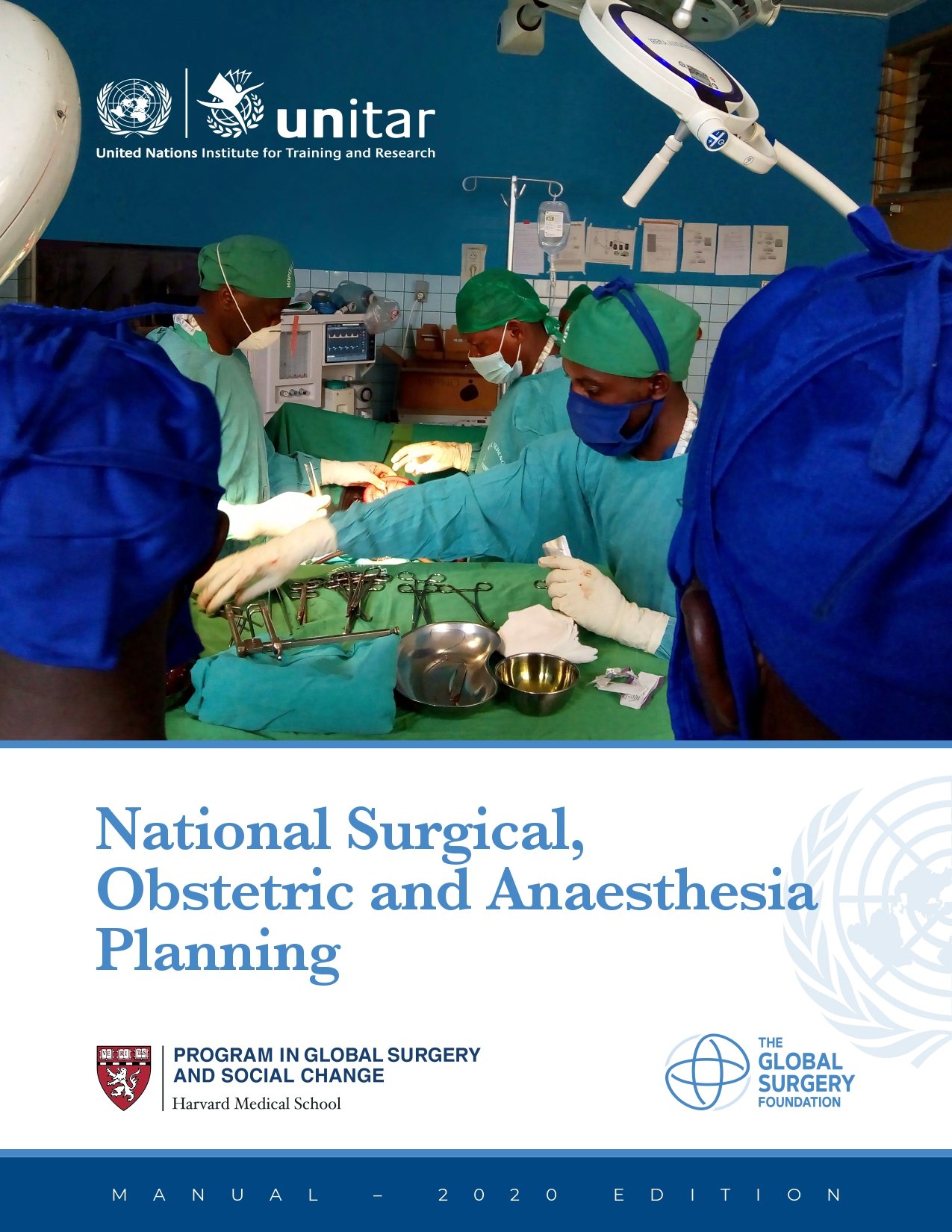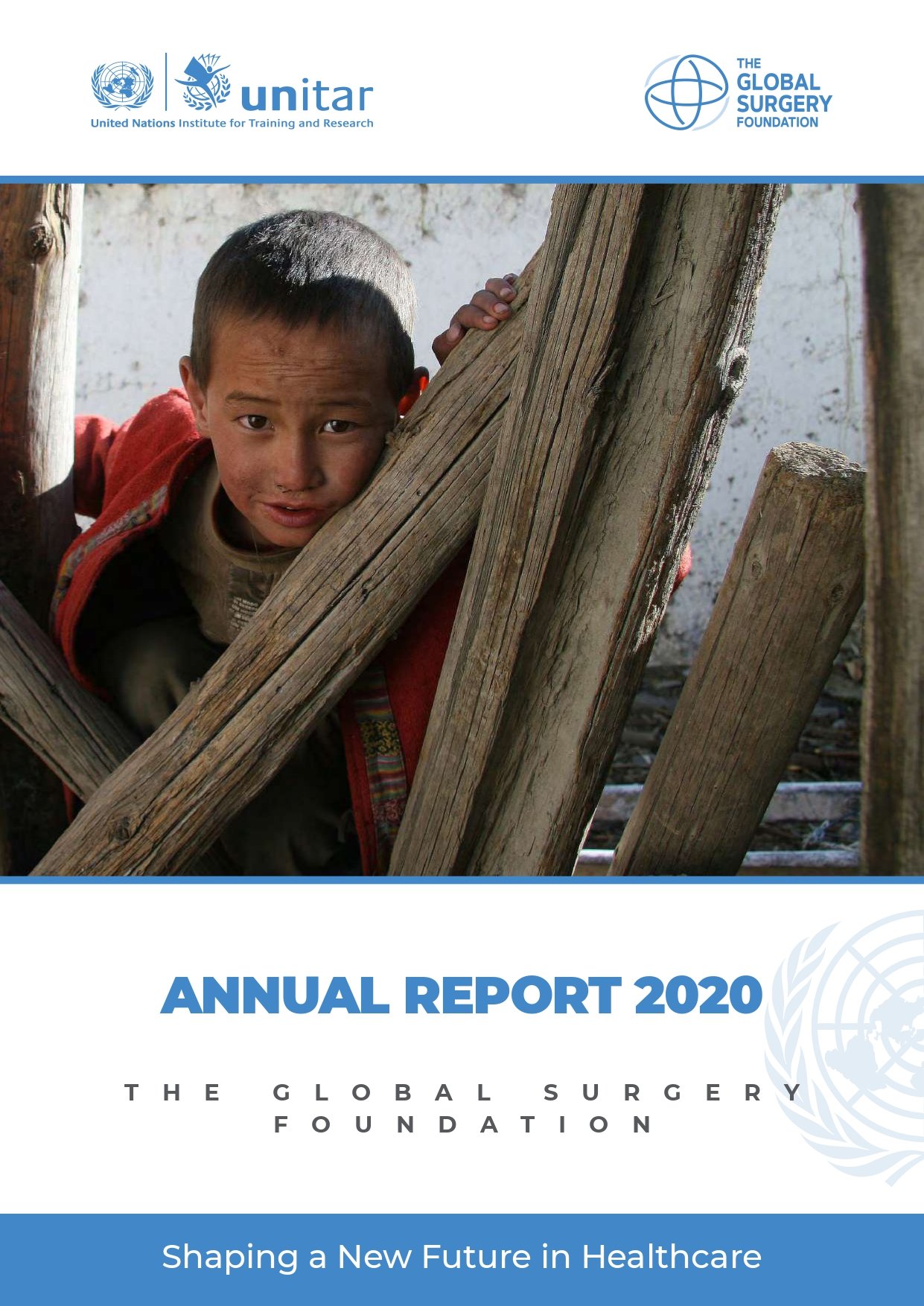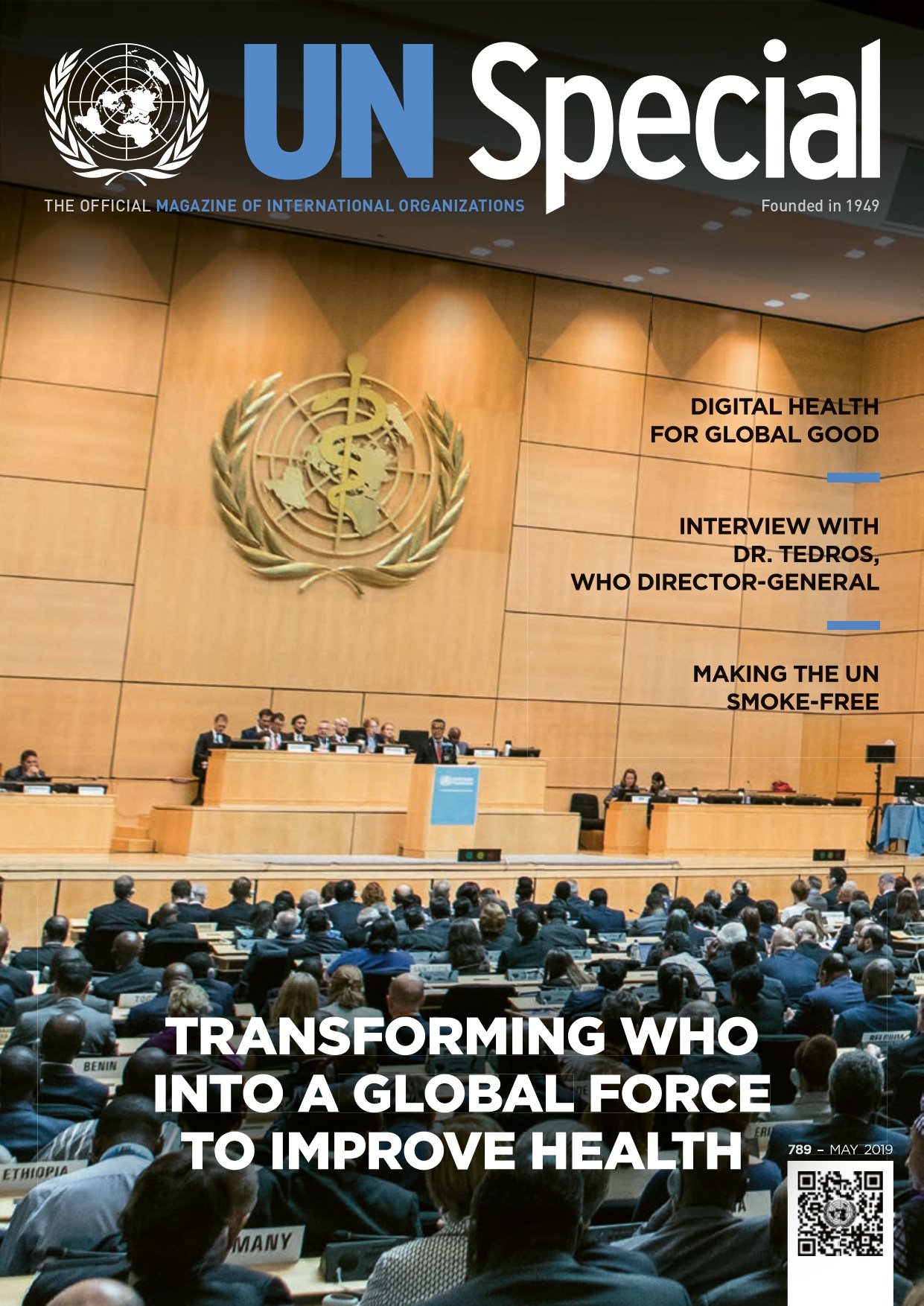Publications
Browse our latest publications in global surgery here.
Highlighted publications
The NSOAP Manual
The NSOAP Manual was published as a collaborative initiative between the United Nations Institute for Training and Research (UNITAR), the Harvard Medical School Program in Global Surgery and Social Change, and the Global Surgery Foundation.
To download the NSOAP Manual free of charge, please fill out the form here. We kindly ask you to share this form with other interested parties instead of disseminating the PDF directly.
The WHA77 GSF Side-Event Report
The Global Surgery Foundation (GSF) hosted a pivotal side event during the 77th World Health Assembly (WHA77) focused on "Unleashing Powerful Partnerships for Women’s Health Equity." The report detailing the key outcomes and insights from this important conversation is now available here.
Investing In Surgery, Closing A Global Health Gap
Access to surgery can keep treatable conditions, such as a common fracture, from becoming lifelong disabilities. In this article, Geoff Ibbotson, Dominique Vervoort and Rifat Atun make the case for investing in surgical systems.
Read the article in Think Global Health here.
GSF Annual report 2023
The Global Surgery Foundation (GSF) recently published its annual report for 2023. Download the report now to read about our growing team, highlighted activities, organisational growth, and expanding partnerships.
Read the 2023 annual report here.
Latest publications
GSF Bi-annual report 2021-22
The Global Surgery Foundation (GSF) recently published its bi-annual report for 2021-22. Download the report now to read about our growing team, highlighted activities, organisational growth, and expanding partnerships.
Routine Sterile Glove And Instrument Change At The Time Of Abdominal Wound Closure To Prevent Surgical Site Infection
This event examined the featured paper to discuss the practice of sterile glove and instrument change at the time of abdominal wound closure as a method for reducing the risk of surgical site infection (SSI), with a focus on implementing this practice in low-income and middle-income settings. SSIs are a well-known complication of abdominal surgery worldwide, with disproportionate impacts on patients in low- and middle-income settings.
Financial Toxicity Among Patients With Breast Cancer Worldwide
A Systematic Review and Meta-analysis
What is the rate of patients incurring financial toxicity as a result of breast cancer care nationally and internationally?
Financial toxicity (FT) is the negative impact of cost of care on financial well-being. Patients with breast cancer are at risk for incurring high out-of-pocket costs given the long-term need for multidisciplinary care and expensive treatments.
Cervical Cancer - Strengthening The Surgical Workforce
Cervical cancer is the fourth most frequent cancer among women and nearly 90% of deaths occurred in low- and middle-income countries in 2018, according to the World Health Organization (WHO). Cervical cancer is developed by nearly 600,000 women with over 300,000 deaths annually, impacting the lives of many women and girls.
Breast Cancer - Moving From Policy To Practice
Breast Cancer continues to be a major global health challenge, claiming the lives of more than 685’000 women in 2020, globally. Over 2 million new cases of breast cancer were diagnosed in women in 2020, worldwide. Cancer care remains a priority and many countries have developed National Cancer care plans, strategies, and policies to combat the growing burden. However, despite the adoption of such policies and plans, there is still a gap in implementing them. What are some of the main challenges in translating policy to practice for Breast Cancer and how can we overcome them?
Pre-Hospital Synergy: Tranexamic Acid And Blood Transfusion In Patients At Risk For Haemorrhage
Hemorrhage remains a leading cause of death after injury. Evidence-based strategies to manage the bleeding trauma patient in hospital have led to a reduction in hemorrhagic deaths, however there is less evidence to support similar pre-hospital interventions. Some strategies, such as early blood product administration and the use of tranexamic acid (TXA), may be extrapolated to the pre-hospital setting, however the utility of combining these interventions remains unknown.
GSF Annual report 2023
The Global Surgery Foundation (GSF) has released its 2023 annual report.
This comprehensive document provides an in-depth look at our dedicated team, significant achievements, organizational advancements, and expanding collaborations over the past year.
To explore all the details and insights from our successful year, see the full report here.
The WHA77 GSF Side-Event Report
The Global Surgery Foundation (GSF) hosted a pivotal side event during the 77th World Health Assembly (WHA77) focused on "Unleashing Powerful Partnerships for Women’s Health Equity." This event addressed the urgent need for comprehensive care systems, particularly the integration of strong surgical care, to tackle neglected women’s health issues and advance gender equity in health. The discussions highlighted the critical role of surgical care in improving outcomes for maternal health, breast cancer, and cervical cancer, especially in low- and middle-income countries. We are pleased to announce that the report detailing the key outcomes and insights from this important event is now available here.
From Concept to Concrete: Implementing Value-Based Healthcare to Improve Care for the Patient
The Global Surgery Foundation (GSF) hosted a webinar focusing on the implementation of value-based healthcare to improve patient outcomes. The panel delved into essential elements of value-based healthcare pilot projects and underscored the importance of a human-centered approach.
Surgical training: Is digital tech here to stay?
The COVID pandemic accelerated the growth of digital technologies and e-learning in surgical training. While many hospitals and training centres have embraced these approaches, challenges remain in choosing the most appropriate technologies and ensuring equitable and even access for all trainees, especially in resource-limited settings. The event was organised by The Global Surgery Foundation (GSF), the Royal College of Surgeons in Ireland, Institute of Global Surgery (RCSI IGS), and the United Nations Institute for Training and Research (UNITAR).
E-learning Supporting Surgical Training in Low-Resource Settings
2.2 million more surgical care clinicians are needed to provide access to safe surgical care for all. E-learning could help to bridge this gap and make surgical training more accessible. As part of the United Nations Global Surgery Learning Hub (SURGhub), the Global Surgery Foundation (GSF), in collaboration with the Royal College of Surgeons in Ireland (RCSI), recently published a review on e-learning in low-resource settings.
The NSOAP Manual
The NSOAP Manual was published as a collaborative initiative between the United Nations Institute for Training and Research (UNITAR), the Harvard Medical School Program in Global Surgery and Social Change, and the Global Surgery Foundation.
To download the NSOAP Manual free of charge, please fill out the form here. We kindly ask you to share this form with other interested parties instead of disseminating the PDF directly.
Nepal NSOAP orientation webinar series
This orientation webinar series marks an important milestone in a roadmap towards formulating a National Surgical, Obstetric and Anaesthesia Plan (NSOAP) for Nepal.
The event was co-hosted by the Ministry of Health and Population (MoHP) and the United Nations Institute for Training and Research (UNITAR). It was highly interactive and provided information on how Nepalese health professionals and leaders can start the process of developing an NSOAP unique for Nepal, including an overview of the current situation of surgical care in Nepal.
Read the report here.
Official Launch Of Pakistan's Surgical Plan
With the Ministry of National Health Services, Regulation and Coordination, Government of Pakistan, the United Nations Institute for Training and Research (UNITAR), Harvard Program in Global Surgery and Social Change, and Indus Hospital & Health Network, we are pleased to have supported the Official Launch of Pakistan’s National Surgical Plan.
Read the launch report here.
Investing In Surgery, Closing A Global Health Gap
Access to surgery can keep treatable conditions, such as a common fracture, from becoming lifelong disabilities. In this article, Geoff Ibbotson, Dominique Vervoort and Rifat Atun make the case for investing in surgical systems.
Read the article which was published in Think Global Health here.
Towards A Strategy For Improving Surgical Healthcare Worldwide
The report, Towards a Strategy for Improving Surgical Healthcare Worldwide, was developed under the guidance of Dr Geoff Ibbotson, Executive Director of the Global Surgery Foundation and Senior Health Advisor at the United Nations Institute for Training and Research (UNITAR).
The ideas, insights and frameworks in the report are drawn from several discussions convened for the Geneva Health Forum 2020 with distinguished clinicians and leaders in surgery, global health and health systems, combined with earlier research conducted by the Program in Global Surgery and Social Change at Harvard Medical School.
The report was published jointly by the Program in Global Surgery and Social Change and Health Systems Innovation Lab at Harvard University and the Global Surgery Foundation.
The GSF Annual Report 2020
With the GSF being officially launched in January 2020 – just weeks before the COVID-19 pandemic rapidly spread around the globe – we moved quickly to adapt our activities. Some planned activities needed to be modified or postponed, whereas other activities increased as the needs presented.
The GSF 2020 Report includes the result of our programming and growth strategy, as well as an outlook for 2021.
Surgery For All: Social Justice For All - Article In UN Special Magazine
7 May 2019 - The Global Surgery Foundation (GSF) published an article in the United Nations Special Magazine. The article can be read by clicking here.
